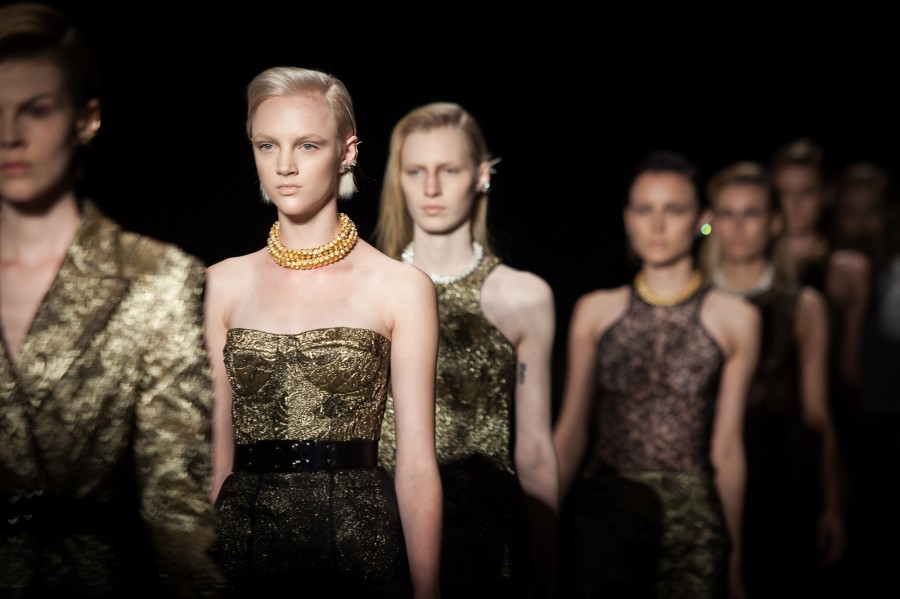British model Naomi Campbell broadcasted the start of this year’s Paris Fashion Week with bold statements asserting a need for racial equality in the modeling and fashion industry, sparking a trend of concern over discrimination all across the world.
Campbell, a black model with a desire to eliminate inequality in the business, was insulted by the lack of colored models on the runway this year. She felt that the use of only six percent of black models at the New York Fashion Week was unacceptable, whether intentional or not.
“Eyes are on an industry that, season after season, watches fashion houses consistently use one or no models of color,” Campbell said. “No matter the intention, the result is racism.”
Senior Maylon Robinson agreed with Campbell’s statement. “[Black models] definitely are under represented,” she said. “But I can understand why. In general, white models sell the look much more effectively, considering that in stores, black dolls are priced cheaper than the generic white Barbie.”
Campbell, alongside Somalian model Iman, argued to fashion week directors that there are several brands notoriously known for excluding or inadequately representing black and Asian models to showcase their new collections.
Designers quickly defended themselves declaring that Campbell’s judgments were unreasonable. Modeling agencies asserted that there is only a limited amount of colored faces available for hire and that these models are not easily reserved for shows.
Senior Jenny Chen stated her belief that the proportion of white models to those of ethnic backgrounds is larger because interests lie in different fields.
“I’ve noticed that Asians who immigrate to America don’t aspire to be models or work in fashion. They’re more driven to pursue careers as, for example, doctors. They’re concerned about landing a secure-paying job,” Chen stated.
Chen continued, “Besides, black celebrities like Tyra Banks were able to make it big. There isn’t a huge discrimination issue in the fashion industry. Or if there is, it would be hard for us, the audience, to notice.”
Fashion was not the only source of controversy this last month, as the new Miss America absorbed prejudiced remarks from the public.
In relation to Campbell’s accusations, the topic of racial discrimination emerged in the United States when Nina Davuluri became the first ever Indian-American to win the Miss America pageant.
Davuluri battled comments neglecting her status as an American and identifying her as a terrorist, though she was neither associated with terrorism nor is she Middle Eastern.
“People who think ‘Americans’ have to be white should be put on a boat and sent back to where they came from,” said English teacher Joseph Hill. “Any other comments I have on this issue are simply not fit to be published.”
This would not be the first time prejudices made an impression on our history, however Campbell’s criticisms and the Miss America backlash indicate that discrimination is not nearing its extinction.
There are high hopes for colored models to make more appearances in the global fashion scene, as America attempts to move toward greater acceptance of multiculturalism.
“The United States is an immigrant society made up of different cultures, and we need to respect that,” Chen maintains. “If you’re going to be ignorant, do it right.”

